It is 9am on the first day of the Frankfurt motor show, perhaps the Volkswagen Group’s most important meeting with its clientele and critics for the next two years.
I’m bound for a 45-minute meeting with its CEO, Matthias Müller, which I’m told will be his only one-on-one interview in English. Why choose us? I presume it’s because Autocar reports things very fully compared with glib dailies and because our much-consulted website gets everywhere.
High on our talk agenda is Müller’s announcement the previous evening of the company’s business plan between now and 2025, called Roadmap E and self-described as “the most comprehensive electrification initiative in the automotive industry”. And we’re bound to touch on Dieselgate.
Earth-shaking morning headlines have sprung up everywhere, and rightly so. The VW Group will launch 80 electric vehicles by 2025, they say, and have 300 electrified models on the market by 2030. The group has earmarked an eye-watering £18 billion “for the industrialisation of e-mobility” and will soon seek tenders for the £45bn worth of batteries it estimates “transformation in our industry” will need.
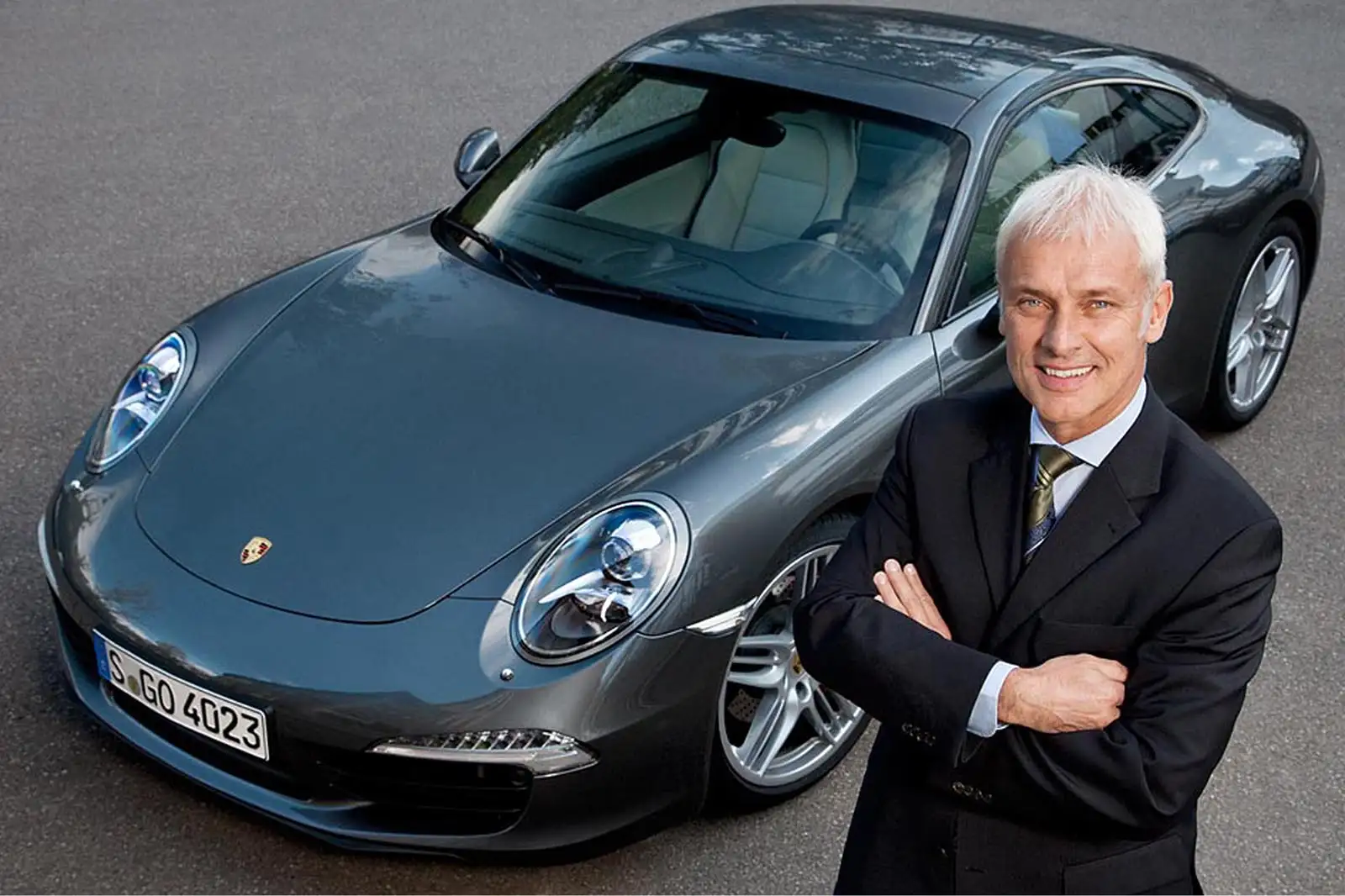
Rounding everything off is a stirring quote from Müller himself: “We have got the message and we will deliver. This is not some vague declaration of intent. It is a strong self-commitment which, from today, becomes the yardstick by which we measure our own performance.”
I’m expecting this to be a formal interview: German top executives usually prefer formality. These are serious topics and top bosses generally have their dignity to protect. So I’m surprised as we enter the inner sanctum of meeting rooms to find Müller leaning casually against one of the corridor walls, chatting with colleagues.
He’s an imposing figure: white-haired but youthful without glasses, and tanned from what I presume must be several recent weeks off in the sun. He looks like he could be a sailor. He smiles, proffers a firm hand, uses my Christian name, ushers me easily into one of the little rooms, sits obligingly where the photographer suggests (some don’t) and generally acts as if this meeting matters (again, some don’t).
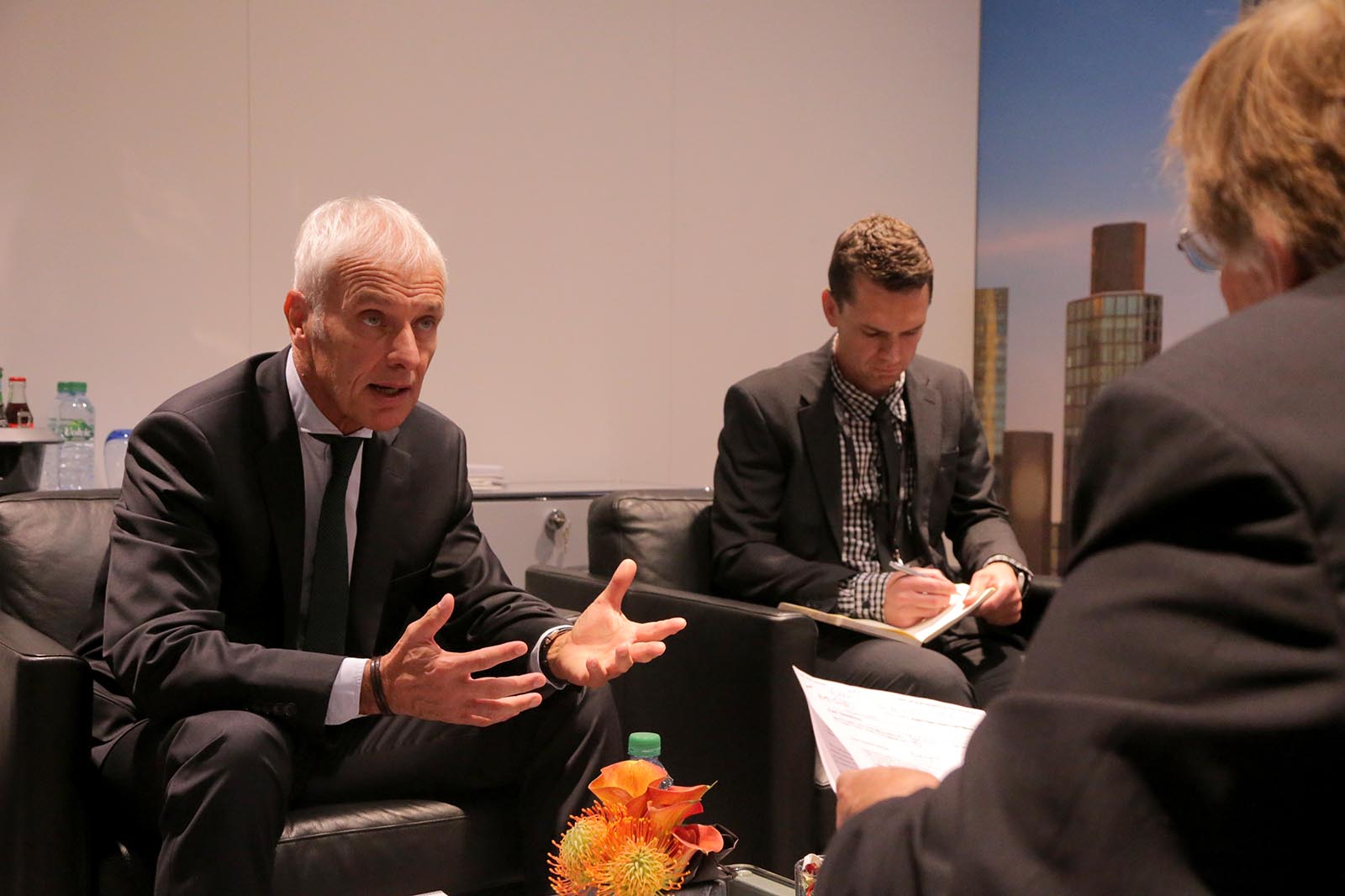

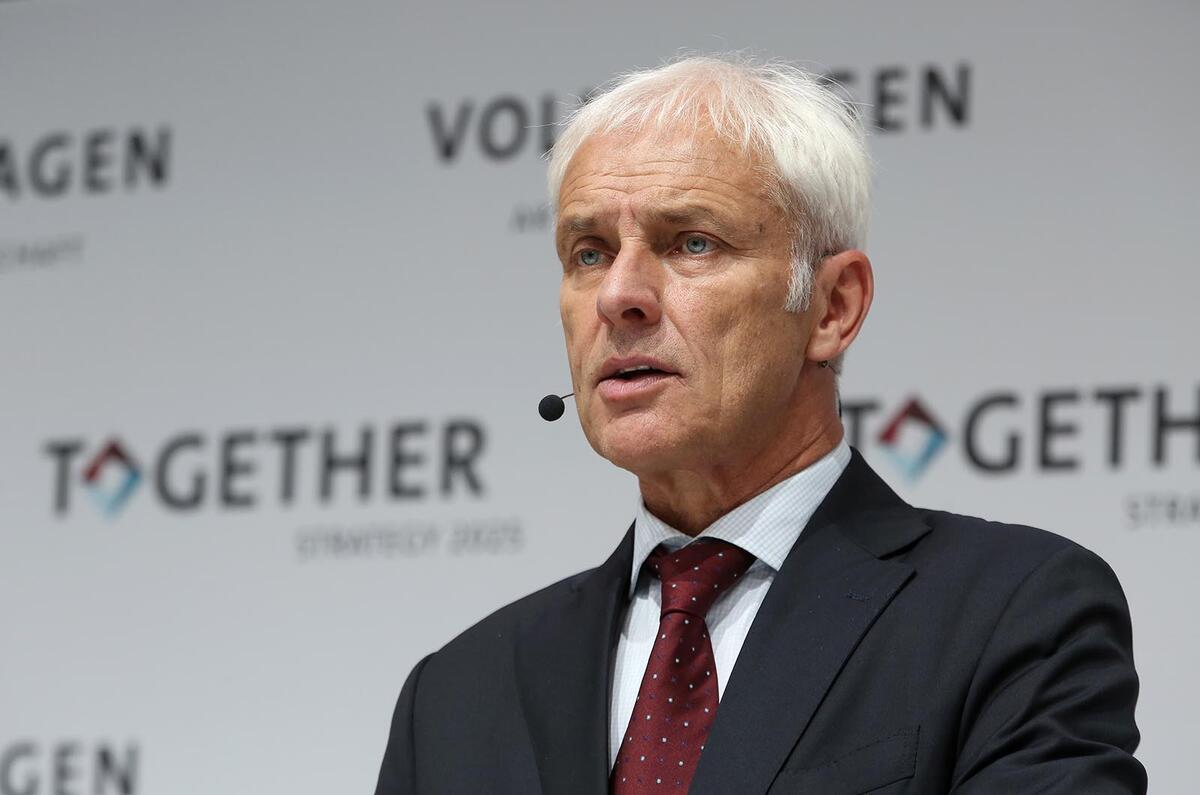
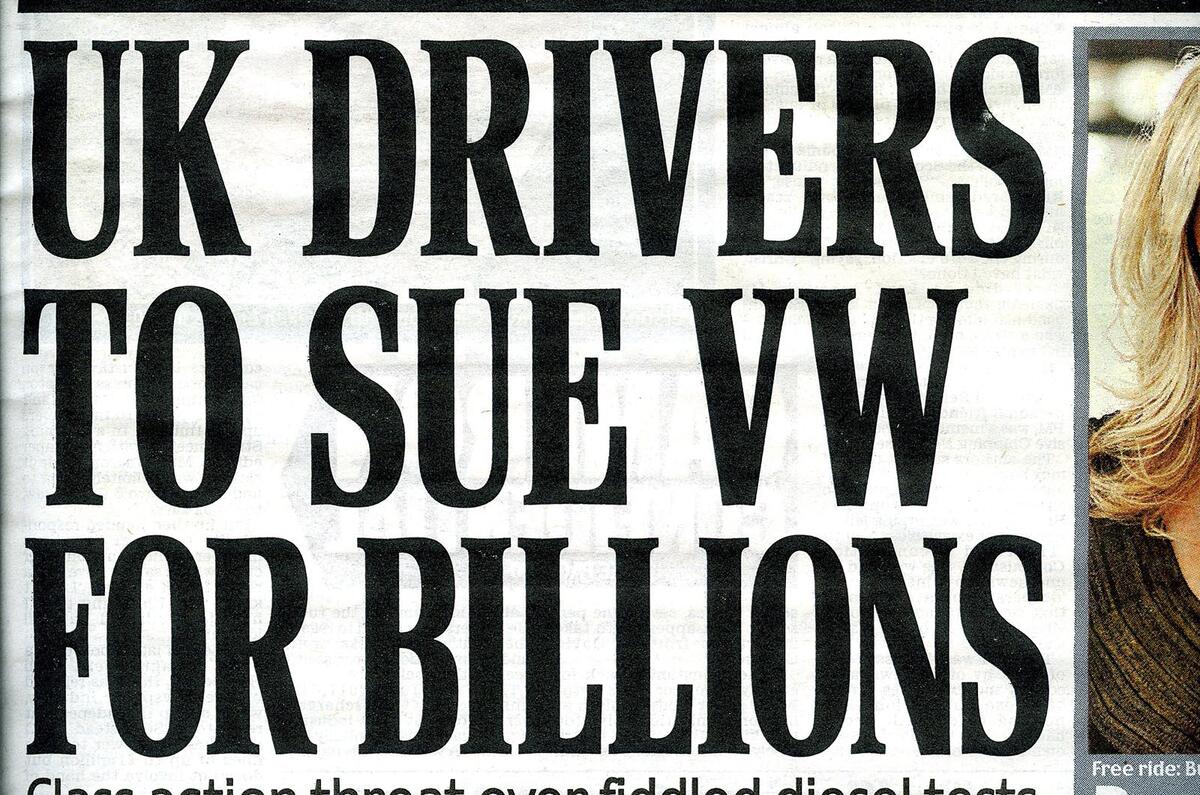
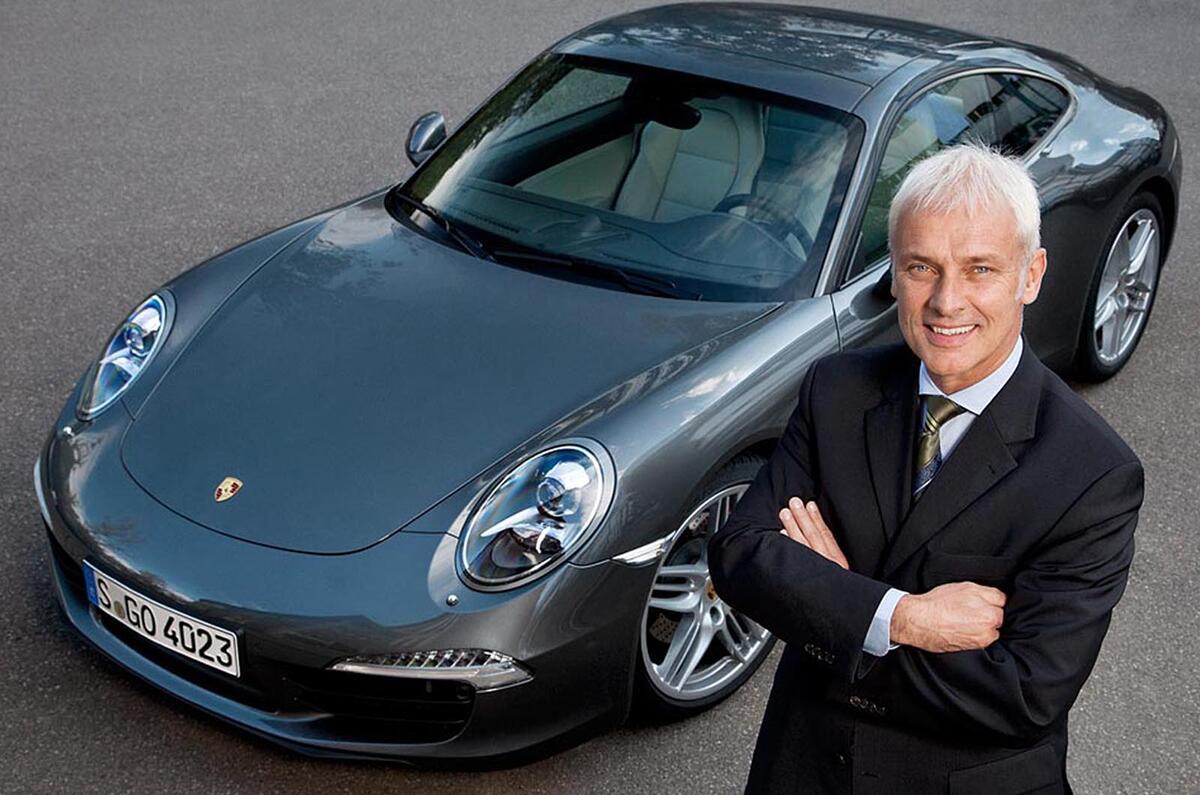
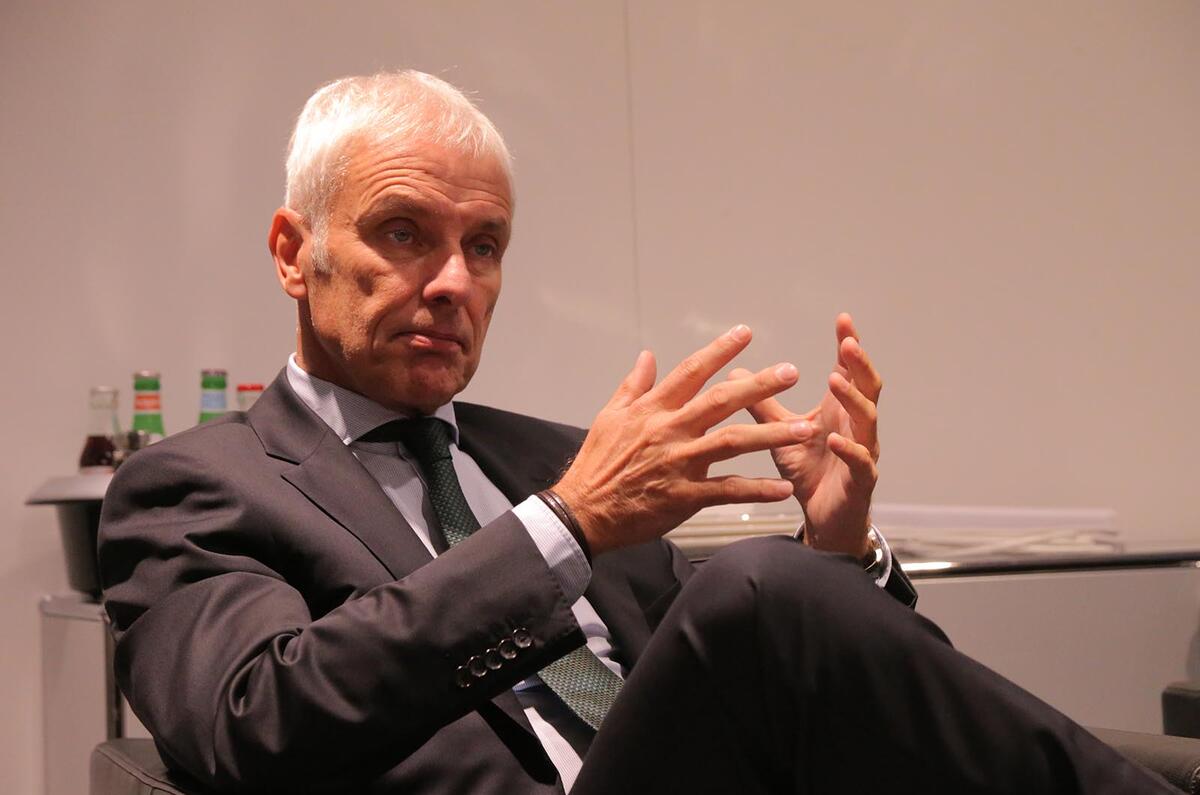
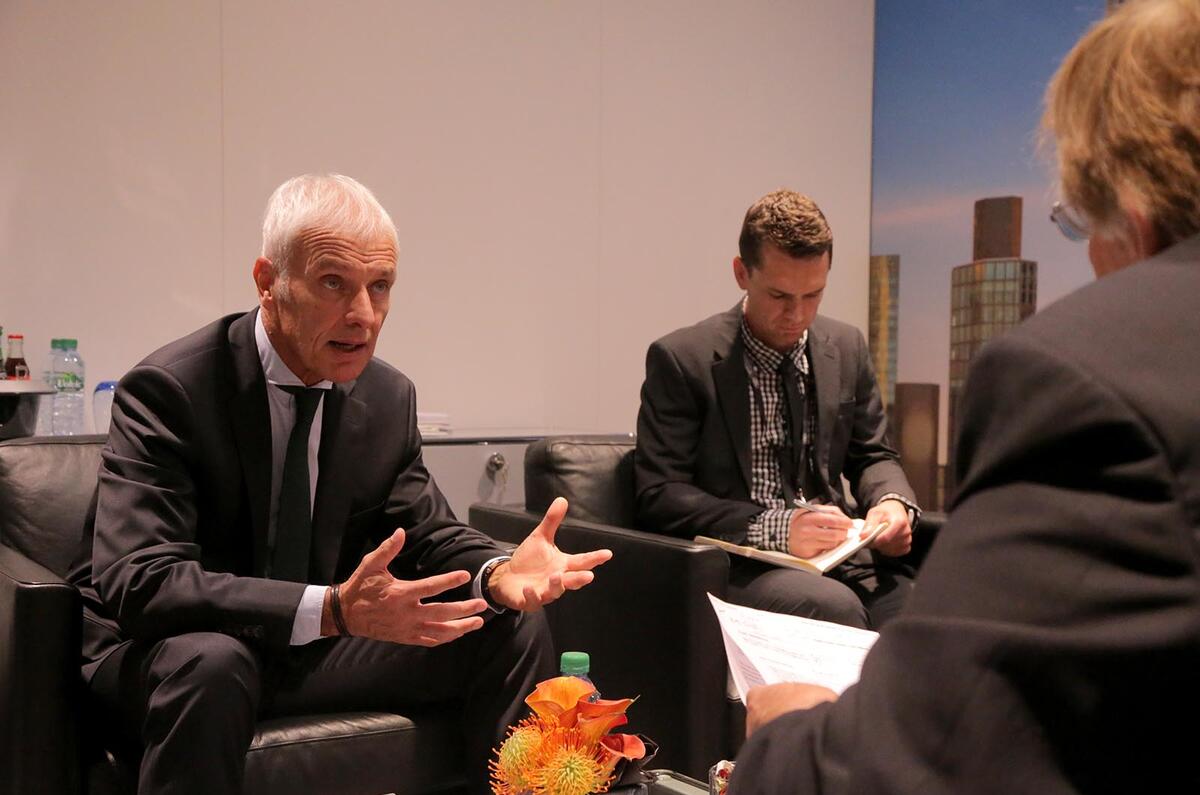
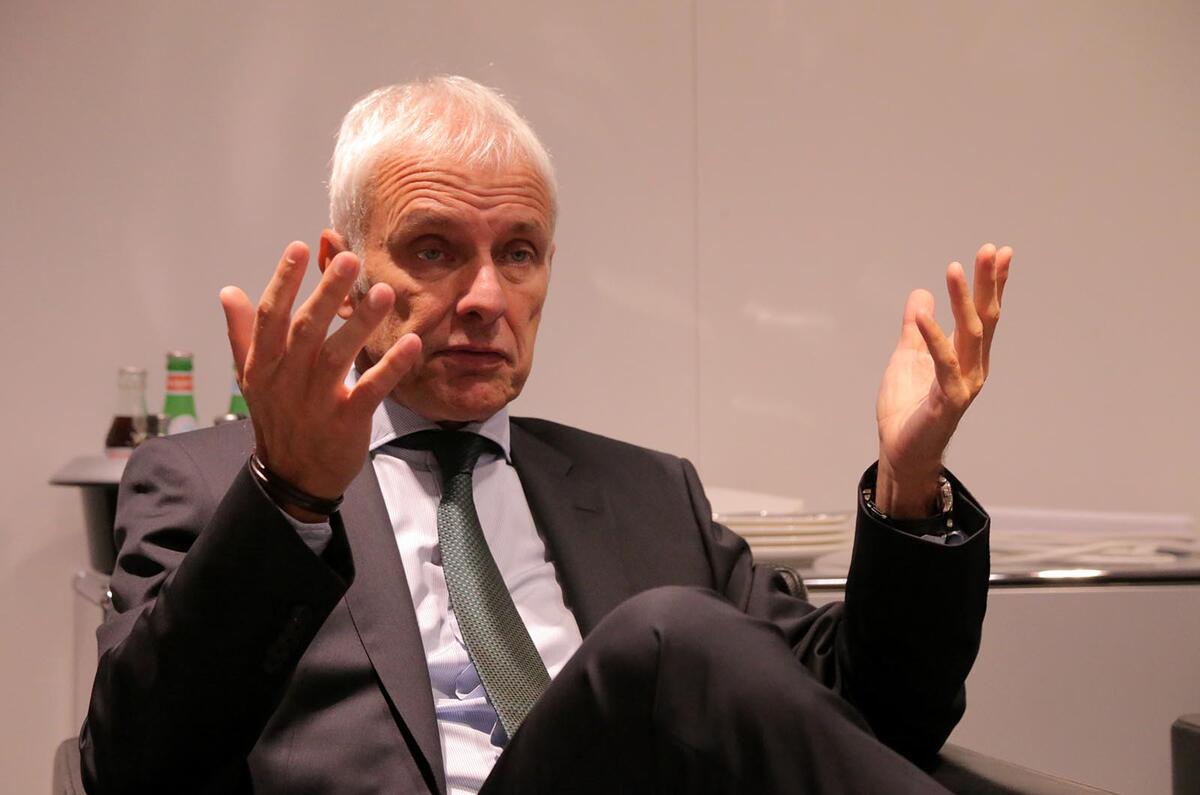
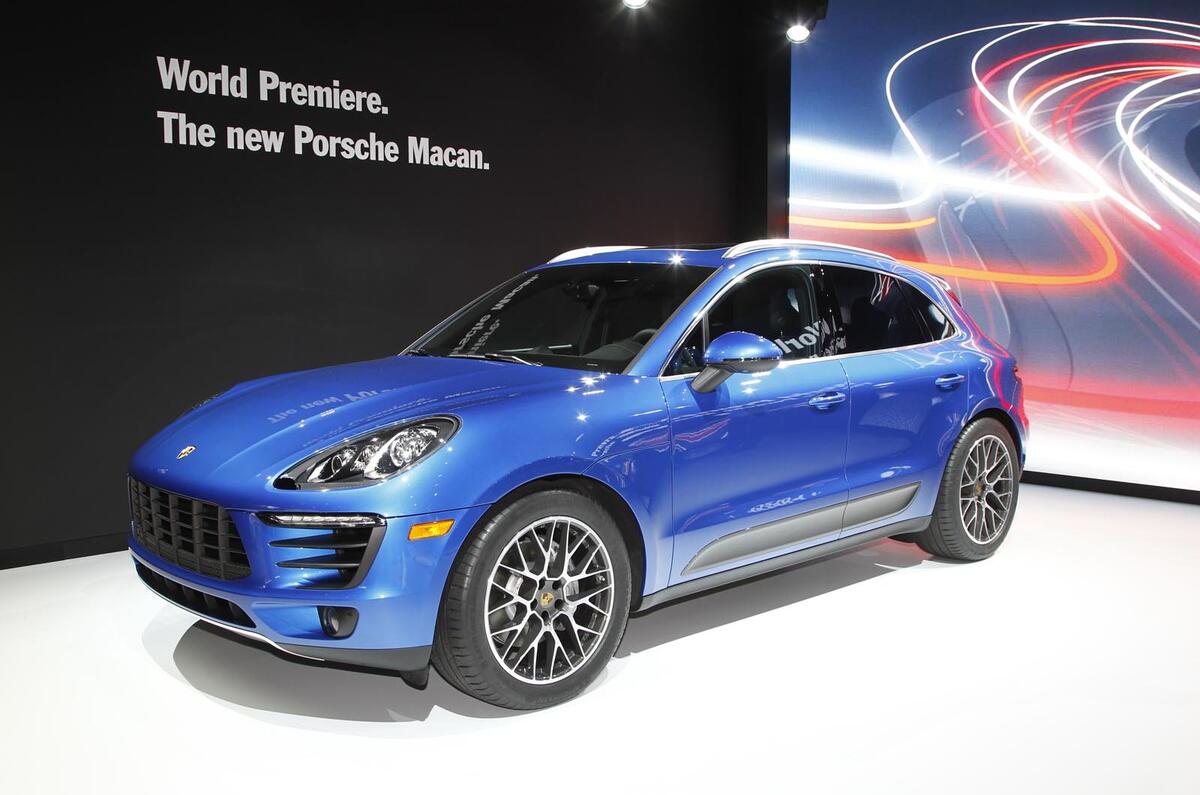
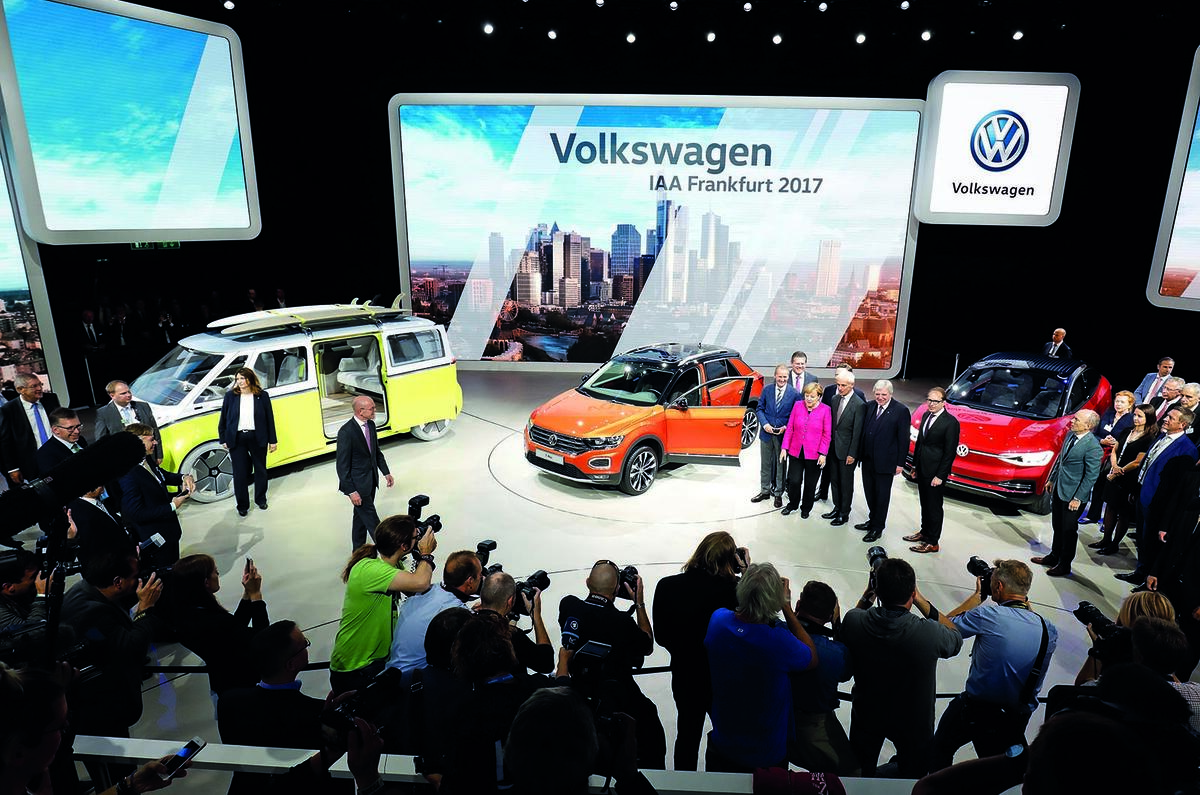
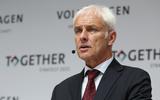
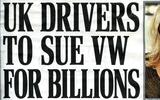
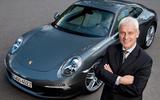
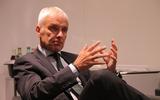
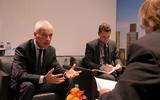
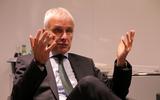

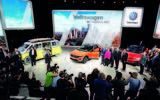

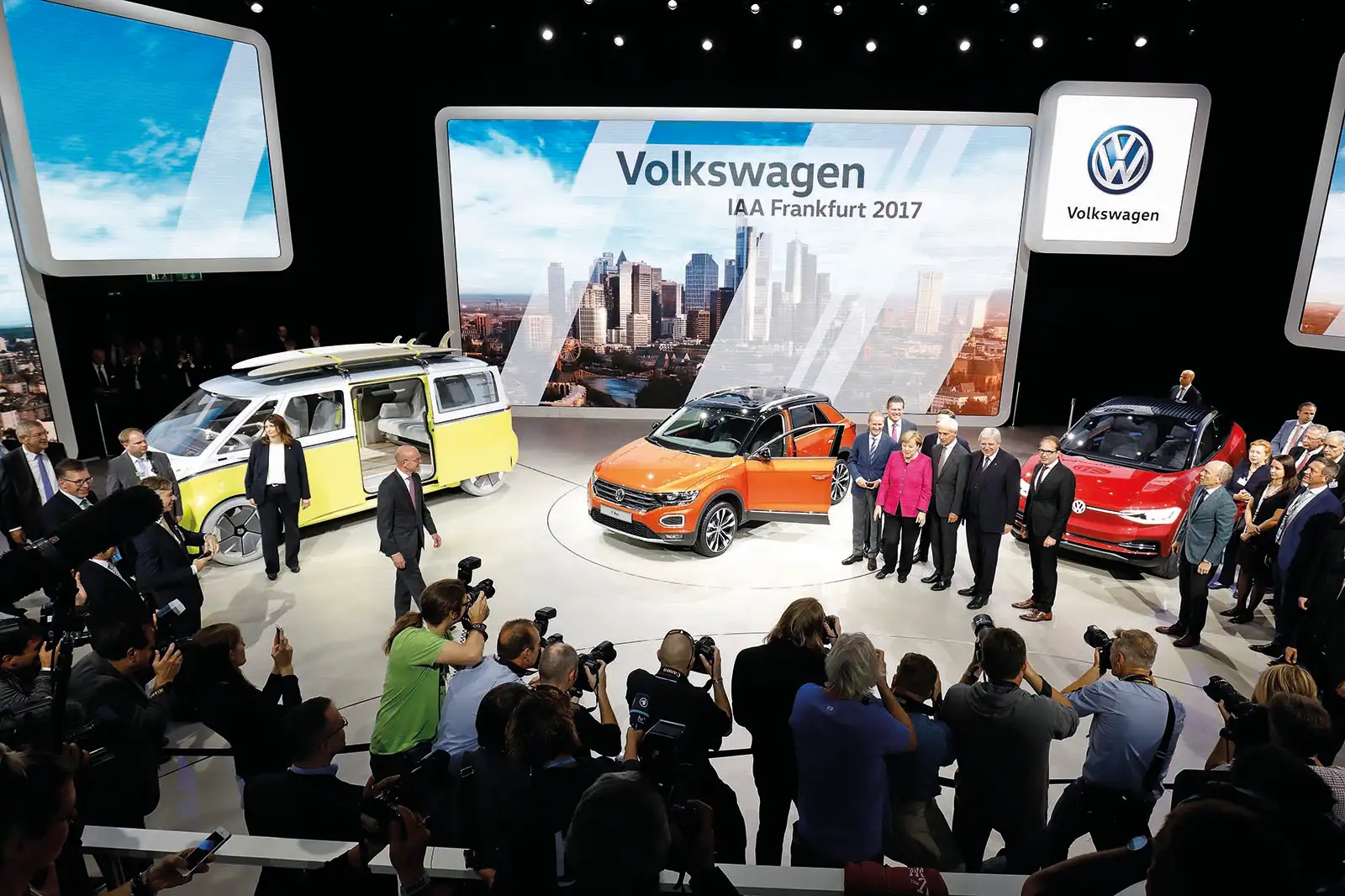
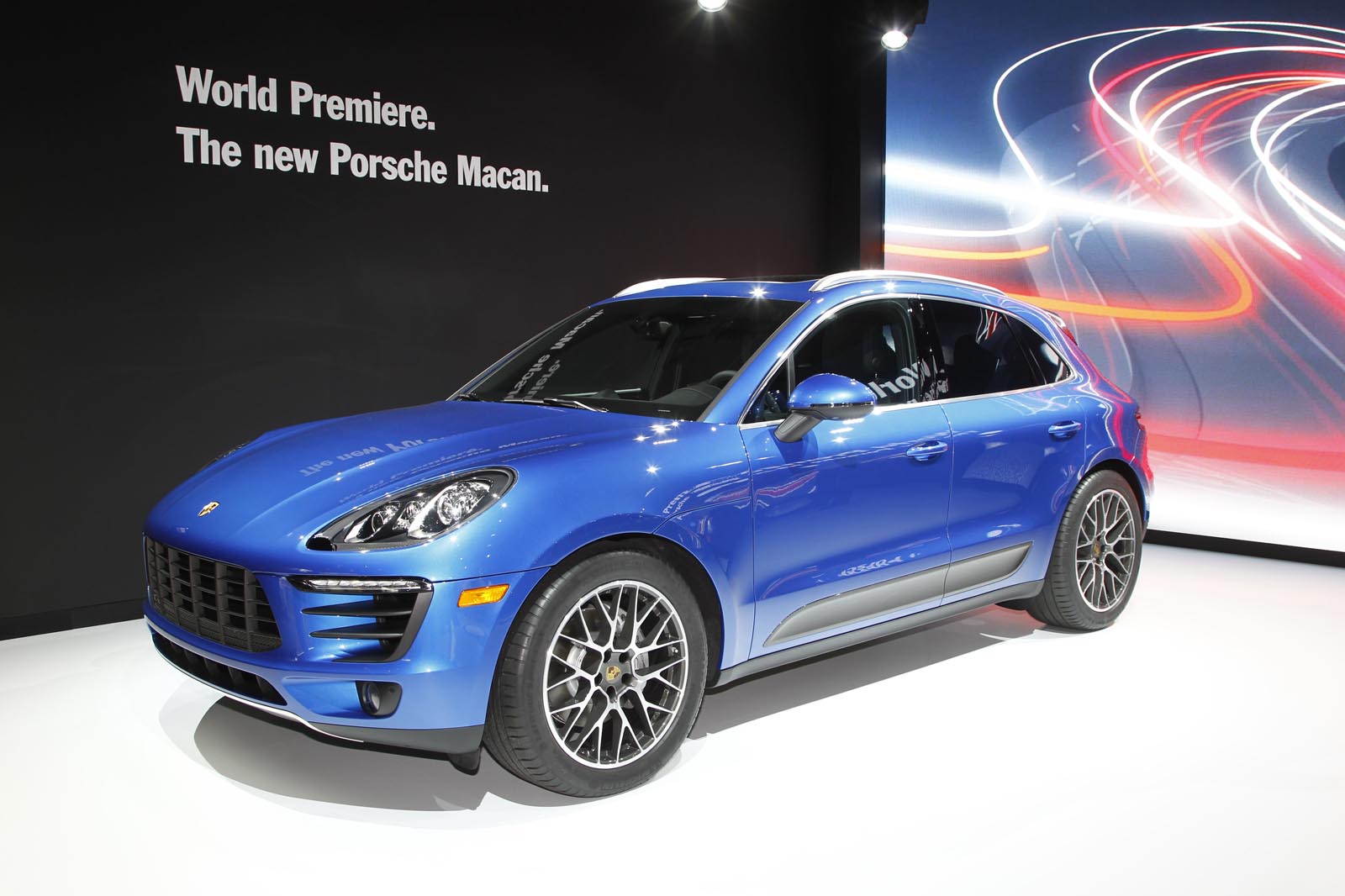
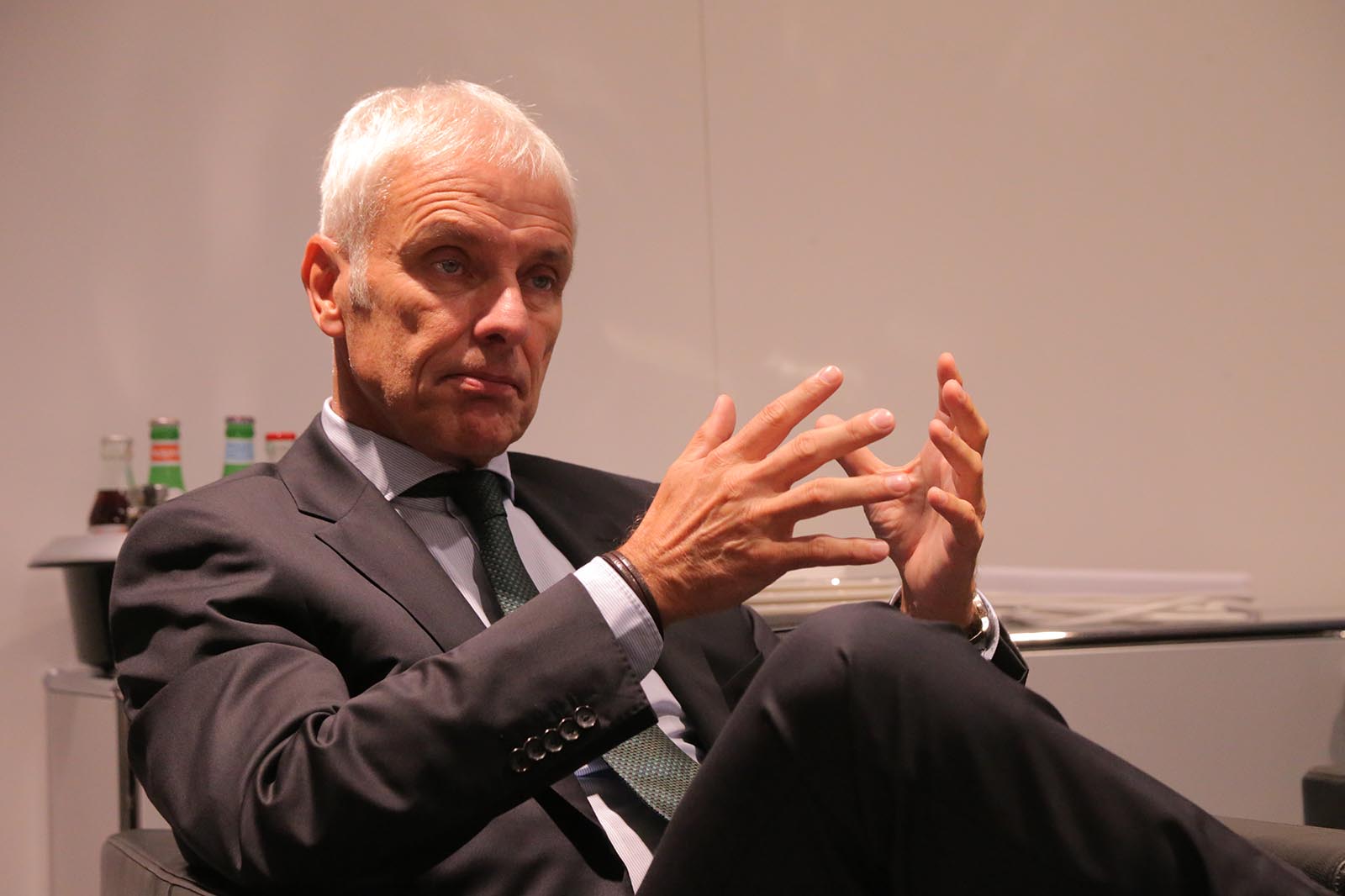





Join the debate
Add your comment
Waste of time
what a waste of an interview. You are well aware of the multitude of issues facing owners who have had the dieselgate fix. Breakdowns, broken parts, loss of MPG but you didn't think to ask about those? Did you go easy on him to maintain their advertising with you. No impartiality. No new news. Waste of a flight.
Funny old world
It's a funny old world. Clearly millions of VWs continue to be sold, its in the top 5 for reliability, and some (an unbelievably small minority) still think that millions of VW owners are dull lifeless morons who are being led by the devil because they can't think for themselves. They rage at every VW they see, and can't stop themselves inwardly shouting "sheep". The arrogance of this is quite breathtaking when put in that context.
However, even extreme minorities are entitled to their opinions, but the curious thing is generally it is extreme opinions which seem to have the most motivation to shout, and with modern technologies the biggest platform to them shout from. See the rise of extreme polarisation in modern politics and read any comments section in any publication for examples of this.
I would say VW have committed a heinous crime, 20bn is a lot for a single fine even for a corporate, and this chap seems to be the man to lead them onwards out of this. Even the worst criminals deserve redemption, if they reform and are contrite about their crimes. Which from this interview is apparently the case for VW as actions speak louder than words, and VW are acting.
Actions Speak Louder Than Words
So yes, let's have some action and get a proper fix.
Good job, Mr Cropley!
Mr Muller has missed his chance to make a positive contribution
He chose to reject this opportunity and continue VAG's cheating ways. Mr Muller will be remembered as the man who wrecked diesel before it's time and betrayed a generation of loyal customers and the public at large. Autocar could have done much more to hold VAG to account, but he who pays the Piper calls the tune.
FadyAdy, you won’t be happy
FadyAdy, you won’t be happy until VW goes into administration and every single worker loses their job. Weirdo.
What about the idiots that
What about the idiots that bought a VW for its notorious “German technology” lol. If they end up in administration, it’s because they deserve to be there after lying and excessively polluting the air that we ALL breath. Plus the fact that they continue to lie to it’s european customers while GENEROUSLY refunding their American customers. Compleately deserved I say.
Inevitable
On the contrary I think this is the most positive and upbeat post I've written about the VW since the diesel scandal broke. Muller should make Volkswagen take the lead in new power trains. Dropping diesel altogether from Polo size cars immediately would be a good start. It makes good financial sense. Other car makers will inevitably follow.
Weirdo
After 2 years of investigation, the Authorities have done no tests to establish if the "Fix" reduces emissions or disadvantages the customer in real world conditions. VAG have never said why they needed to cheat in the first place. Personally, I find that all a bit strange.